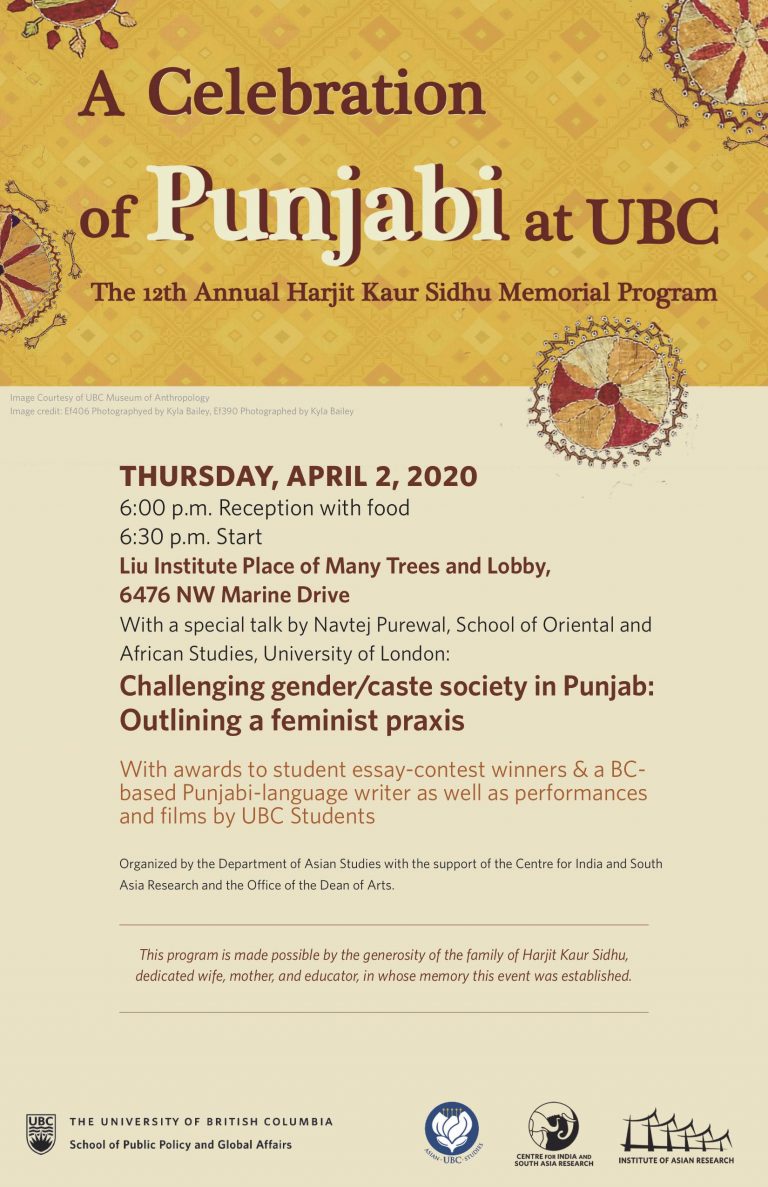This event has been cancelled due to COVID-19 safety precautions. Thank you for your support!
Organized by the UBC Asian Studies, with CISAR and the Dean of Arts. Made possible by the generosity of the Sidhu family, in honour of devoted mother, wife, and educationist, Harjit Kaur Sidhu.
The 12th Annual Harjit Kaur Sidhu Memorial Program: Celebrating Punjabi Language and Culture at UBC
The Harjit Kaur Sidhu Memorial Program celebrates the rich life of Punjabi language and culture and its importance in BC, in memory of a woman who shared such passions. Register Here
The 2020 program features a lecture with Navtej Purewal, Challenging Gender/Caste Society in Punjab: Outlining a Feminist Praxis.
Abstract
This lecture will explore a recurring question in Punjab: is it possible to conceive of equality and justice in a society steeped in egalitarian discourse alongside caste and gender ideologies? Through an exploration of competing and colluding discourses, state laws, cultural practices and policy frameworks, Navtej Purewal will highlight how barriers to altering and challenging the conundrum of gender and caste inequalities in contemporary Punjab require an approach which goes beyond a narrow focus on ‘rights’, egalitarian religious discourse, and laws. By drawing on illustrative examples, the talk will outline and consider tools and strategies for a caste-ending feminist praxis.
Presenter
Navtej Purewal (PhD in Development Studies, Lancaster University) is an inter-disciplinary social scientist whose work focuses on the political sociology of South Asia. Her research interests and publications span a range of disciplines. methodologies and methods. She focuses on the dialectical relationship between the political and the social, with a strong interest in gender, structural violence, social change and the on-going bordering processes across the region of South Asia. Her new co-authored book Beyond Religion in India and Pakistan: Gender and Caste, Borders and Boundaries (Bloomsbury, 2019) is based on extensive field research in the region of Punjab, spanning India and Pakistan, where gender and caste frame social structures through patriarchy, caste ideology and evolving social and political forms.
